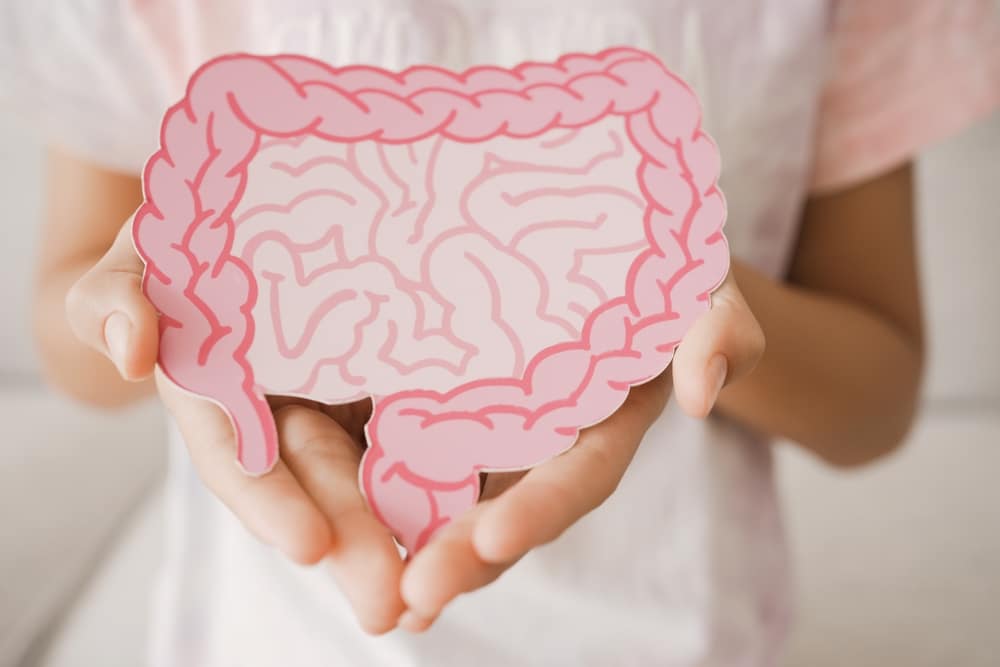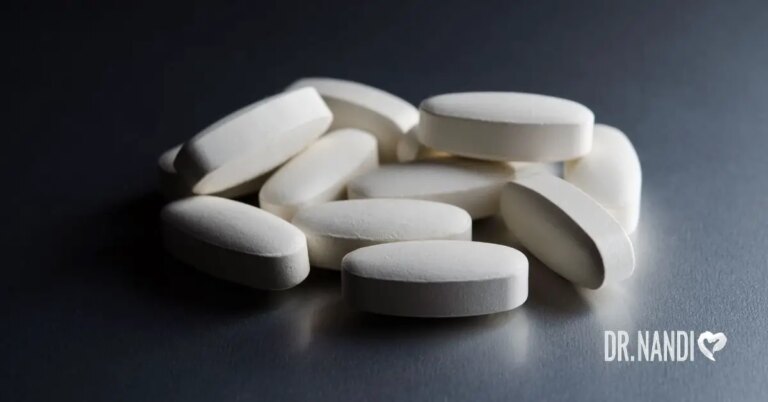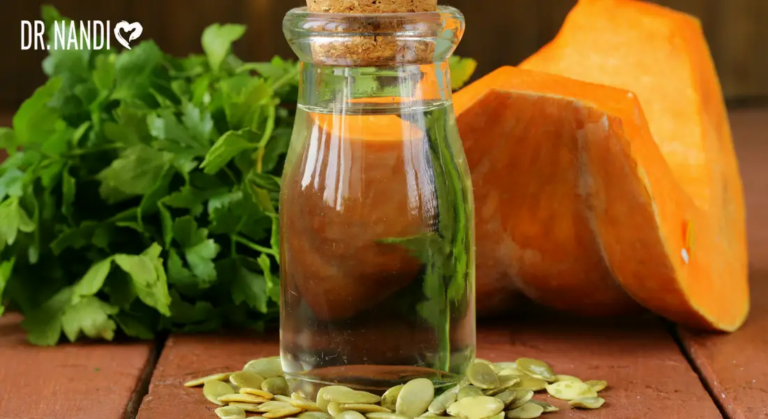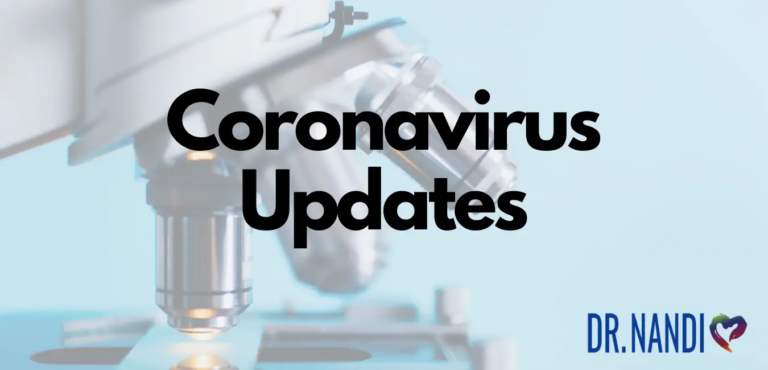Your gut isn’t just where food is digested—it’s home to a bustling community of microorganisms, known as gut bacteria, that have a huge impact on your overall health. Collectively, this gut microbiome is made up of hundreds of bacterial species, many of which are beneficial to digestion, immune function, and even mental well-being. These “friendly” bacteria help digest food, produce essential nutrients like vitamin K, and fend off harmful microorganisms. However, a balanced gut microbiome is essential; too many “unfriendly” bacteria or too few beneficial ones can lead to an unhealthy gut, a state often referred to as dysbiosis.
You might think you have your health routine down pat—balanced meals, regular exercise, and adequate sleep—but could your everyday habits be secretly undermining your gut health? From the innocent smoothie in the morning to your late-night screen time, surprising elements of your daily life may be quietly wreaking havoc on your digestive system. As we uncover the hidden culprits behind gut discomfort, it’s time to reveal the unexpected ways you could be disturbing the delicate balance of your microbiome.
1. Eating a Restricted Variety of Foods
A well-rounded, diverse diet is one of the simplest yet most impactful ways to support a balanced gut microbiome. Different types of gut bacteria require specific nutrients to thrive, making variety in your food choices essential to maintaining a resilient and healthy gut environment.
Research has shown that a diet rich in whole foods, particularly fruits, vegetables, and whole grains, promotes a more diverse gut microbiome. This diversity is critical because a broader range of bacteria increases the gut’s ability to recover from stressors like infection or antibiotic use. Unfortunately, in recent decades, the Western diet has become increasingly homogenized, with 75% of the world’s food supply now coming from just 12 plants and five animal species. This shift limits the nutrients available to our gut bacteria, ultimately reducing microbial diversity.
In contrast, populations in rural areas of Africa and South America, whose diets are largely plant-based and rich in fiber, tend to have significantly more diverse gut bacteria. These diets, often minimally processed and free from the influence of Westernized food systems, include a variety of plant proteins, fibers, and natural prebiotics that nourish the gut’s beneficial bacteria.
Nutrients That Feed a Healthy Gut Microbiome
Certain foods act as “fertilizers” for beneficial gut bacteria, helping them grow and thrive. Whole foods—particularly fiber-rich fruits and vegetables—provide a steady supply of these nutrients, encouraging a balanced and diverse gut flora. Here’s how different food types contribute to gut health:
- Fruits and Vegetables: Packed with fiber, antioxidants, and micronutrients, fruits and vegetables promote the growth of beneficial bacteria. Fiber, in particular, passes through the digestive tract largely undigested, reaching the colon where it serves as food for gut bacteria.
- Whole Grains: Rich in fiber and prebiotics, whole grains like oats, brown rice, and barley nourish specific strains of bacteria that help produce short-chain fatty acids. These acids have anti-inflammatory properties and contribute to colon health.
- Plant-Based Proteins: Legumes, nuts, and seeds contain both fiber and plant proteins, creating an ideal environment for a diverse microbiome. The presence of these foods in a diet encourages the growth of bacteria types associated with metabolic health and reduced inflammation.
2. Not Taking Enough Prebiotics
Prebiotics are non-digestible fibers and compounds found in certain foods. Unlike other nutrients that are absorbed earlier in the digestive process, prebiotics pass through the stomach and small intestine largely unchanged. When they reach the colon, they are fermented by beneficial bacteria, supporting their growth and activity. This fermentation process is crucial, as it encourages the production of short-chain fatty acids (SCFAs) like butyrate, acetate, and propionate, which have powerful anti-inflammatory properties and play a role in maintaining colon health.
Including prebiotics in the diet isn’t just beneficial for short-term digestion—it can contribute to a resilient and balanced gut microbiome over the long term. By nourishing beneficial bacteria, prebiotics help to fend off harmful microbes and improve the gut’s ability to withstand stressors, such as illness or antibiotics. This is particularly important for preventing the development of dysbiosis, where an imbalance of gut bacteria leads to various health issues, from digestive discomfort to systemic inflammation.
Common Sources of Prebiotics
A range of everyday foods contains prebiotics, making it easy to integrate them into your diet for better gut health. Below are some prebiotic-rich foods that can help cultivate a healthy gut bacteria balance:
- Legumes: Lentils, chickpeas, and beans are high in prebiotic fibers that support gut health.
- Whole Grains: Foods like oats and barley provide prebiotic fibers that promote the growth of beneficial bacteria.
- Fruits: Bananas, particularly when slightly green, are rich in prebiotics.
- Vegetables: Jerusalem artichokes, asparagus, garlic, onions, and leeks are among the best sources of prebiotic fiber.
- Nuts and Seeds: Almonds and flaxseeds provide prebiotic compounds that support a thriving microbiome.

3. Drinking Too Much Alcohol
Chronic alcohol intake can lead to dysbiosis, a condition where harmful bacteria outnumber beneficial ones. This imbalance compromises the gut’s ability to function properly, affecting digestion, nutrient absorption, and immune response. Studies have shown that excessive alcohol consumption decreases the diversity of gut bacteria, reducing the abundance of beneficial strains like Bifidobacteria and Lactobacilli, while allowing harmful bacteria to proliferate.
Beyond altering bacterial composition, alcohol can damage the gut lining, leading to increased intestinal permeability, commonly known as “leaky gut.” This condition allows toxins and bacteria to enter the bloodstream, triggering systemic inflammation and contributing to various health issues, including liver disease and metabolic disorders.
Recommendations for Alcohol Consumption
To maintain a healthy gut microbiome, it’s advisable to limit alcohol intake. For those who choose to drink, moderation is key. The Centers for Disease Control and Prevention (CDC) defines moderate drinking as up to one drink per day for women and up to two drinks per day for men. Opting for beverages like red wine, which contain beneficial polyphenols, may be preferable, but should still be consumed in moderation.
Alcohol can be enjoyed responsibly, but moderation is key to preserving a balanced gut and avoiding an unhealthy gut. Keeping intake within recommended limits and choosing polyphenol-rich options like red wine when possible can support a healthier microbiome.
4. Taking Antibiotics
Antibiotics are essential for treating bacterial infections and have saved countless lives. They are designed to target and kill bacteria, but they lack the precision to distinguish between “good” and “bad” bacteria. When taken, antibiotics reduce the population of harmful pathogens as well as beneficial bacteria such as Lactobacilli and Bifidobacteria. This widespread bacterial reduction can result in dysbiosis, a state where beneficial bacteria levels drop, making the gut environment more susceptible to harmful microorganisms. Dysbiosis weakens the immune defenses, alters digestion, and can cause long-term shifts in bacterial composition.
Research shows that even a single round of antibiotics can disrupt gut flora diversity for up to several weeks. Although the body may restore some of the beneficial bacteria over time, repeated antibiotic use or long-term courses can have more lasting effects, sometimes taking months or even years for the gut microbiome to return to its original state.
Supporting Gut Health During and After Antibiotic Treatment
If antibiotic use is unavoidable, there are several steps to help mitigate its impact on gut health and promote recovery:
- Take Probiotics: Probiotics are beneficial bacteria that can help replenish the gut microbiome during and after antibiotic treatment. It’s best to take probiotics at least two hours apart from antibiotics to maximize their effectiveness. Strains like Lactobacillus and Bifidobacterium are particularly beneficial for gut health.
- Eat Prebiotic-Rich Foods: Prebiotics provide food for beneficial bacteria and encourage their growth. Foods like garlic, onions, asparagus, and bananas can help support bacterial regrowth and recovery after antibiotics.
- Focus on Fermented Foods: Foods like yogurt, kefir, sauerkraut, and kimchi are rich in live cultures that can introduce healthy bacteria back into the gut. Adding these foods to your diet can speed up recovery and restore microbial balance.
- Avoid Overusing Antibiotics: When possible, avoid using antibiotics for minor infections that can resolve on their own or with alternative treatments. Consulting a healthcare professional can help determine if antibiotic treatment is necessary.
5. Avoiding Physical Activity
Physical activity is known for its numerous health benefits, from boosting cardiovascular health to improving mental well-being. However, one of its lesser-known effects is on the gut microbiome. Recent research shows that regular exercise can help diversify and strengthen the population of gut bacteria, contributing to a more balanced, healthy gut.
Studies suggest that physical activity promotes the growth of beneficial bacteria and enhances microbial diversity, both crucial factors in maintaining an unhealthy gut. In particular, exercise has been shown to increase the abundance of bacteria that produce short-chain fatty acids (SCFAs), such as butyrate. SCFAs are anti-inflammatory compounds that support colon health, strengthen the gut lining, and play a role in metabolic health.
One study comparing professional athletes to non-athletes revealed that the athletes had a significantly higher diversity of gut bacteria. Athletes also had higher levels of Akkermansia, a bacterium associated with improved metabolic health and lower inflammation. This suggests that consistent physical activity may help cultivate a healthier and more resilient microbiome.
Simple Ways to Integrate Physical Activity for Gut Health
To reap the gut-health benefits of physical activity, it doesn’t require hours at the gym. Here are a few accessible ways to incorporate exercise into your daily routine:
- Start with Moderate-Intensity Activities: Activities like walking, cycling, and swimming are beneficial for gut health and can be adjusted to fit different fitness levels.
- Try Interval Training: Incorporating bursts of intensity, such as jogging intervals during a walk, can stimulate gut bacteria diversity and improve fitness.
- Include Strength Training: Building muscle supports metabolic health, which in turn benefits the microbiome.
- Prioritize Consistency Over Intensity: Regular, consistent exercise—even in shorter sessions—is more effective for maintaining a healthy gut microbiome than sporadic, high-intensity workouts.

6. Smoking
Research has shown that smoking can lead to an imbalance in the gut microbiome, often causing dysbiosis. Smokers tend to have lower levels of beneficial bacteria and a higher prevalence of harmful bacteria that promote inflammation. Studies have linked smoking-induced dysbiosis to various gut-related disorders, including inflammatory bowel disease (IBD) and Crohn’s disease, which are characterized by chronic inflammation of the digestive tract. In fact, smokers are twice as likely to develop Crohn’s disease compared to non-smokers, and the risk increases with the duration and intensity of smoking.
Additionally, smoking has been associated with a reduction in gut bacteria diversity, weakening the gut’s resilience against external stressors and potentially increasing susceptibility to infections and digestive disorders. This decrease in bacterial diversity affects the gut’s ability to maintain a balanced immune response and may contribute to systemic inflammation, which can lead to chronic health conditions over time.
Benefits of Quitting Smoking for Gut Health
When it comes to gut health, quitting smoking offers numerous benefits that extend to other areas of the body. Here’s how quitting smoking can lead to positive outcomes:
- Reduced Inflammation: Quitting smoking decreases inflammation in the gut, reducing the risk of conditions like Crohn’s disease and IBD.
- Improved Immune Function: A healthier gut microbiome supports immune resilience, helping the body fight off infections more effectively.
- Better Digestive Health: A balanced gut environment supports digestion and nutrient absorption, improving overall digestive health.
- Enhanced Systemic Health: A well-functioning gut microbiome can contribute to reduced risks of cardiovascular disease, diabetes, and other chronic illnesses.
7. Not Sleeping Enough
Sleep affects everything from mental clarity to metabolic processes. Less understood, however, is how sleep, or the lack of it, can also have a significant effect on our gut health. Our bodies operate on a circadian rhythm—a 24-hour internal clock that not only helps manage our sleep patterns but also regulates brain, body, and hormone functions. This natural cycle also influences the gut, orchestrating a daily rhythm that aligns our digestive and metabolic functions.
Research indicates that disrupting this circadian rhythm through poor sleep habits, such as irregular sleep patterns, shift work, or eating late at night, can adversely affect gut health. A pioneering study in 2016 specifically explored the consequences of short-term sleep deprivation on gut flora. In this study, just two nights of reduced sleep (approximately 4 hours per night) altered the gut microbiome composition, increasing the abundance of bacteria linked to weight gain, obesity, type 2 diabetes, and fat metabolism. These findings suggest that even brief deviations from normal sleep patterns can prompt negative changes in the gut flora that may contribute to a range of health issues.
Strategies to Enhance Sleep for Gut Health
Improving your sleep quality is not just beneficial for your mental and physical health; it’s also crucial for maintaining a healthy gut microbiome. Here are some effective strategies to ensure you get quality sleep, thus supporting your digestive health:
- Establish a Regular Sleep Schedule: Going to bed and waking up at the same time every day helps synchronize your body’s internal clock, or circadian rhythm, which in turn regulates digestive functions.
- Create a Restful Environment: Make your bedroom conducive to sleep by keeping it dark, quiet, and cool. Invest in comfortable bedding and minimize noise and light pollution.
- Limit Late Night Eating: Try to have your last meal of the day at least 2-3 hours before bedtime to give your body ample time to digest.
- Reduce Blue Light Exposure: Exposure to blue light from screens before bed can disrupt your sleep cycle. Limiting screen time in the evening and using apps or settings that filter out blue light can help maintain your natural sleep-wake cycle.
- Incorporate Relaxation Techniques: Activities such as reading, meditating, or taking a warm bath before bed can help reduce stress and promote relaxation.
8. Not Managing Stress
Scientific studies, particularly those in animal models, provide clear evidence of how stress impacts gut health. For instance, research involving mice has shown that environmental and social stressors like isolation, crowding, and temperature extremes significantly alter gut flora. These stressors not only decrease microbial diversity but also promote the growth of potentially harmful bacteria such as Clostridium, while reducing populations of beneficial bacteria like Lactobacillus. This shift can potentially exacerbate gastrointestinal issues and influence overall health negatively.
Human studies, though more limited, have begun to shed light on similar patterns. A study focusing on the gut bacteria of college students demonstrated that the intense stress of final exams could reduce levels of beneficial bacteria such as Lactobacilli. These findings hint at the potential widespread implications of stress on gut health, though more extensive research is needed to fully understand the dynamics.
Effective Ways to Manage Stress for Gut Health
Managing stress is not just good for your mental health; it’s also essential for maintaining a balanced gut. Here are some strategies that can help alleviate stress and its effects on the gut:
- Mindfulness Practices: Engaging in mindfulness and meditation can significantly reduce stress levels, potentially helping to stabilize gut bacteria.
- Consistent Physical Activity: Regular exercise helps mitigate stress and can improve both mental and physical health, contributing to a healthier gut.
- Quality Sleep: Good sleep hygiene is crucial for stress reduction and can help maintain a healthy gut microbiome.
- Building Social Connections: Strong social relationships can provide emotional support and reduce stress, positively affecting gut health.

My Personal RX on Keeping Gut Bacteria Healthy and Happy
Maintaining a healthy and diverse gut microbiome is crucial for overall well-being. The state of your gut bacteria influences everything from your immune system to your mood and cognitive function. While foundational health practices are vital, there are additional unique and personalized strategies that can further enhance and support your gut health. Here are my personal recommendations to ensure your gut bacteria are thriving.
- Incorporate MindBiotic for Enhanced Microbial Support: Utilize MindBiotic, a comprehensive supplement that combines probiotics, prebiotics, and adaptogens. This targeted approach helps stabilize the gut microbiota, reducing inflammation and supporting the gut-brain connection.
- Engage in Regular “Gut Check-ins” with the Gut Health Quiz: Utilize tools like the Gut Health Quiz to regularly assess the state of your gut health. This can help you track changes over time, understand the impact of your lifestyle choices on your gut microbiome, and adjust your habits accordingly.
- Rotate Your Probiotics: Just like a diverse diet aids gut health, rotating the strains of probiotics you consume can expose your gut to a variety of beneficial bacteria, enhancing microbial diversity and resilience.
- Fermented Foods Challenge: Challenge yourself to incorporate a different fermented food into your diet each week. Options like miso, tempeh, kefir, and different types of sauerkraut can introduce novel probiotics to your system.
- Hydration Plus: Enhance your water intake with natural, flavor-enhancing, and gut-friendly additives like cucumber, mint, or ginger. These can aid digestion and add a pleasant variety to your hydration habits without added sugars.
- Practice Culinary Diversity: Experiment with global cuisines that naturally incorporate diverse, fiber-rich ingredients and fermented foods. This not only makes your meals more interesting but also benefits your gut bacteria.
- Read and Apply Insights From Heal Your Gut, Save Your Brain: Dive deep into understanding the gut-brain connection with my book Heal Your Gut, Save Your Brain. Apply the insights to tailor your diet and lifestyle specifically to benefit both gut health and cognitive function.
- Temperature Therapy: Experiment with varying the temperature of the foods you eat. Consuming both warm and cold foods can stimulate different aspects of digestive health and may influence gut flora.
- Natural Antibacterial Agents: Incorporate natural antibacterial agents like garlic and coconut oil in moderation, which can help control harmful bacteria and support gut health.
- Mindful Eating Practices: Focus on the practice of mindful eating—pay attention to the taste, texture, and reaction your body has to different foods. This can help in recognizing foods that support your gut health and those that may not be as beneficial.
Sources:
- Heiman, M. L., & Greenway, F. L. (2016). A healthy gastrointestinal microbiome is dependent on dietary diversity. Molecular Metabolism, 5(5), 317–320. https://doi.org/10.1016/j.molmet.2016.02.005
- De Filippo, C., Cavalieri, D., Di Paola, M., Ramazzotti, M., Poullet, J. B., Massart, S., Collini, S., Pieraccini, G., & Lionetti, P. (2010). Impact of diet in shaping gut microbiota revealed by a comparative study in children from Europe and rural Africa. Proceedings of the National Academy of Sciences, 107(33), 14691–14696. https://doi.org/10.1073/pnas.1005963107
- Slavin, J. (2013). Fiber and Prebiotics: Mechanisms and health benefits. Nutrients, 5(4), 1417–1435. https://doi.org/10.3390/nu5041417
- Mutlu, E. A., Gillevet, P. M., Rangwala, H., Sikaroodi, M., Naqvi, A., Engen, P. A., Kwasny, M., Lau, C. K., & Keshavarzian, A. (2012). Colonic microbiome is altered in alcoholism. AJP Gastrointestinal and Liver Physiology, 302(9), G966–G978. https://doi.org/10.1152/ajpgi.00380.2011
- Phillips, M. L. (2009). Gut reaction: environmental effects on the human microbiota. Environmental Health Perspectives, 117(5). https://doi.org/10.1289/ehp.117-a198
- Jernberg, C., Löfmark, S., Edlund, C., & Jansson, J. K. (2007). Long-term ecological impacts of antibiotic administration on the human intestinal microbiota. The ISME Journal, 1(1), 56–66. https://doi.org/10.1038/ismej.2007.3
- Leonel, A. J., & Alvarez-Leite, J. I. (2012). Butyrate. Current Opinion in Clinical Nutrition & Metabolic Care, 15(5), 474–479. https://doi.org/10.1097/mco.0b013e32835665fa
- Clarke, S. F., Murphy, E. F., O’Sullivan, O., Lucey, A. J., Humphreys, M., Hogan, A., Hayes, P., O’Reilly, M., Jeffery, I. B., Wood-Martin, R., Kerins, D. M., Quigley, E., Ross, R. P., O’Toole, P. W., Molloy, M. G., Falvey, E., Shanahan, F., & Cotter, P. D. (2014). Exercise and associated dietary extremes impact on gut microbial diversity. Gut, 63(12), 1913–1920. https://doi.org/10.1136/gutjnl-2013-306541
- Biedermann, L., Zeitz, J., Mwinyi, J., Sutter-Minder, E., Rehman, A., Ott, S. J., Steurer-Stey, C., Frei, A., Frei, P., Scharl, M., Loessner, M. J., Vavricka, S. R., Fried, M., Schreiber, S., Schuppler, M., & Rogler, G. (2013). Smoking cessation induces profound changes in the composition of the intestinal microbiota in humans. PLoS ONE, 8(3), e59260. https://doi.org/10.1371/journal.pone.0059260
- Benedict, C., Vogel, H., Jonas, W., Woting, A., Blaut, M., Schürmann, A., & Cedernaes, J. (2016). Gut microbiota and glucometabolic alterations in response to recurrent partial sleep deprivation in normal-weight young individuals. Molecular Metabolism, 5(12), 1175–1186. https://doi.org/10.1016/j.molmet.2016.10.003
- Gur, T. L., Worly, B. L., & Bailey, M. T. (2015). Stress and the commensal Microbiota: Importance in parturition and infant neurodevelopment. Frontiers in Psychiatry, 6. https://doi.org/10.3389/fpsyt.2015.00005
- Bharwani, A., Mian, M. F., Foster, J. A., Surette, M. G., Bienenstock, J., & Forsythe, P. (2015). Structural & functional consequences of chronic psychosocial stress on the microbiome & host. Psychoneuroendocrinology, 63, 217–227. https://doi.org/10.1016/j.psyneuen.2015.10.001











 Subscribe to Ask Dr. Nandi YouTube Channel
Subscribe to Ask Dr. Nandi YouTube Channel









